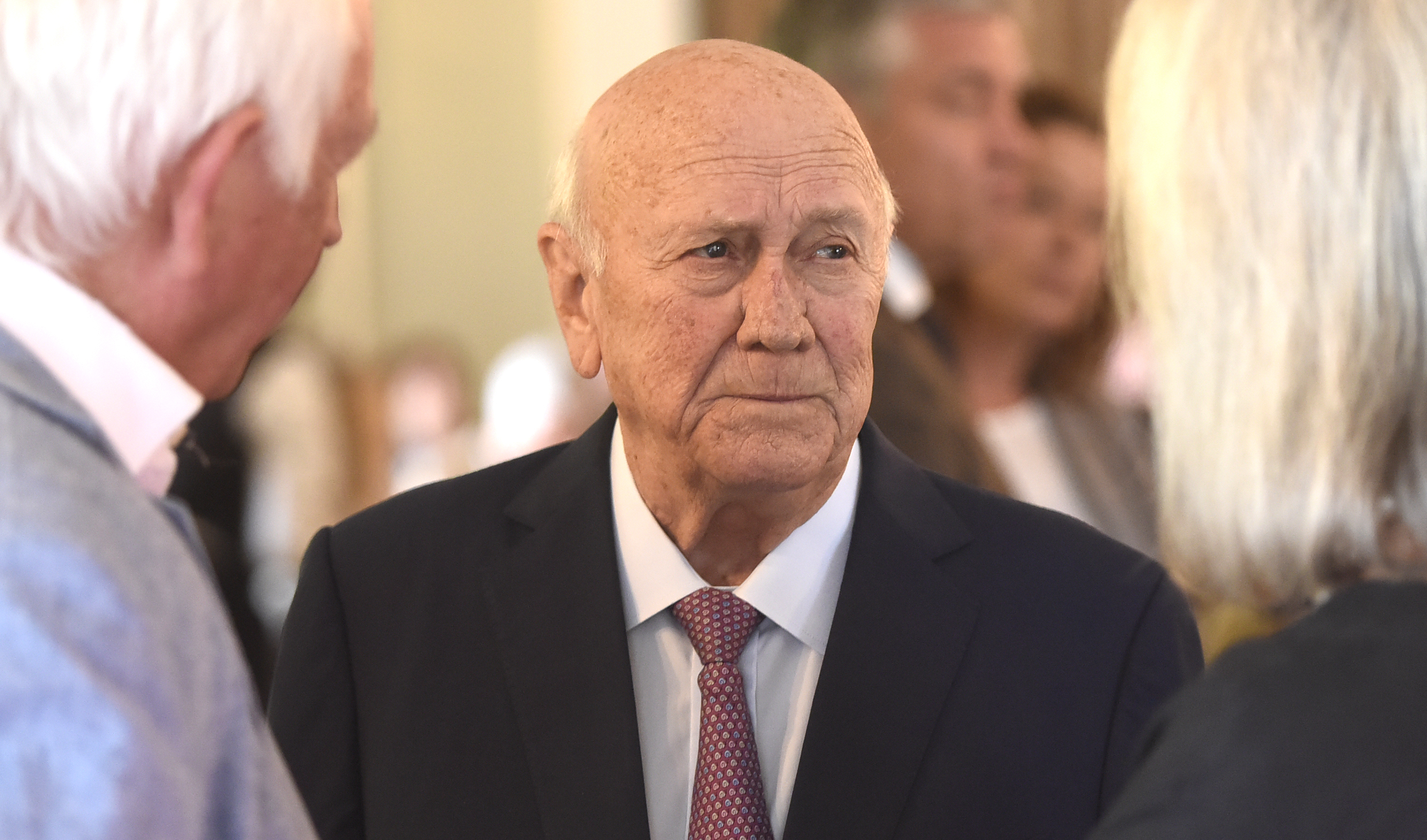The passing of the last president of apartheid South Africa has not only stirred emotions and opened up old wounds but have also sparked a raging debate on whether he deserves an official send-off. Experts have suggested that denying the man who served as deputy president to Nelson Mandela in the government of national unity a state funeral would not only be unconstitutional and naïve, but also divisive. President Cyril Ramaphosa is yet to pronounce on the funeral status De Klerk will receive, saying he was awaiting confirmation of what De Klerk’s representatives have planned for the funeral of the…
The passing of the last president of apartheid South Africa has not only stirred emotions and opened up old wounds but have also sparked a raging debate on whether he deserves an official send-off.
Experts have suggested that denying the man who served as deputy president to Nelson Mandela in the government of national unity a state funeral would not only be unconstitutional and naïve, but also divisive.
President Cyril Ramaphosa is yet to pronounce on the funeral status De Klerk will receive, saying he was awaiting confirmation of what De Klerk’s representatives have planned for the funeral of the late apartheid leader.
However, Ramaphosa said government “stands ready” to support the family and the F.W. de Klerk Foundation in bidding the late statesman farewell.
Unconstitutional
The Economic Freedom Fighters has vowed to oppose, through public protest and all means necessary, a state funeral for the man “who died without ever accounting for the blood on his hands”
Bernard Bekink, professor in the department of Public Law at University of Pretoria, said the decision to allow and provide for an official state funeral for a specific person, is regulated in terms of a formal national policy document, as approved by the ruling government.
He said currently the ‘State, Official and Provincial Official Funeral Policy Manual’ of July 2016 regulates this matter and that, based on the policy manual, De Klerk, as a former State President and former deputy state president, should qualify for either a category 1 or 2 state funeral.
Bekink said it is for the Director-General in the office of the presidency, to make this determination within the framework of the policy.
Although policy documents were not legislation or legal rules, he said there were clear legal precedents that confirm that when a policy is in place, the government must interpret and apply such policy provisions in compliance with the Constitution of the RSA, which is the supreme law.
“Any law or conduct, must be consistent with the Constitution. If an official state funeral for De Klerk is thus refused, and no rational legal reasons (merely political) are provided, it would be possible for an application to be made to the High Court on perhaps constitutional grounds, such as fairness, equality…” he said.
Complex legacy
Daryl Glaser, Professor in the University of Witwatersrand’s Department of Political Studies, said De Klerk was one of those complicated and flawed figures who may never find a comfortable place in South Africa’s myth of national redemption.
He said some might see it as sufficient that he defied his family history and party to facilitate a momentous change.
“However inevitable that change, he speeded it along and helped ensure that it was less bloody than it might have been. But he could never accept that he was party to a crime against humanity or that he was, by implication, a moral criminal,” Glaser said.
To this extent, he said, it was difficult to know how to handle his death, or to say how the nation should.
Glaser said it was one thing to historically acknowledge a person’s undoubted contribution and another to shower him with highest honours.
“Frankly, I’d rather see this issue handled by historians, writers, and commentators, who can form balanced and informed judgements, than by either state officials or partisan hacks,” he added.
Naïve
Dr Sethulego Matebesi, a Senior Lecturer in the University of Free State’s Department of Sociology, said despite all his flaws, it would be naïve for the state to deny De Klerk a state funeral on the basis of his track record as a leader.
He said it was common knowledge that his National Party advanced racism and white supremacy, and what De Klerk stood for.
“But what is the difference between De Klerk and current leaders and public servants who have created deeply entrenched networks of rampant corruption? What is the difference between a known enemy, and criminals masquerading as seasoned politicians?” Matebesi asked.
He said De Klerk, as a former president, deserves a state funeral unless South Africa intends to apply its Constitutional mandates selectively.
Matebesi said those who feel aggrieved have space to do so, but said respecting De Klerk for his bravery in opening the channels of communication that ushered the democratic dispensation may heal wounds beyond SA’s borders.
“De Klerk’s passing is presenting SA with yet another challenge that seems to divide the nation. However, this is also a golden opportunity to remind the world that, through the principle of Ubuntu, SA is able to navigate without fail around such pressing challenges,” he added.








